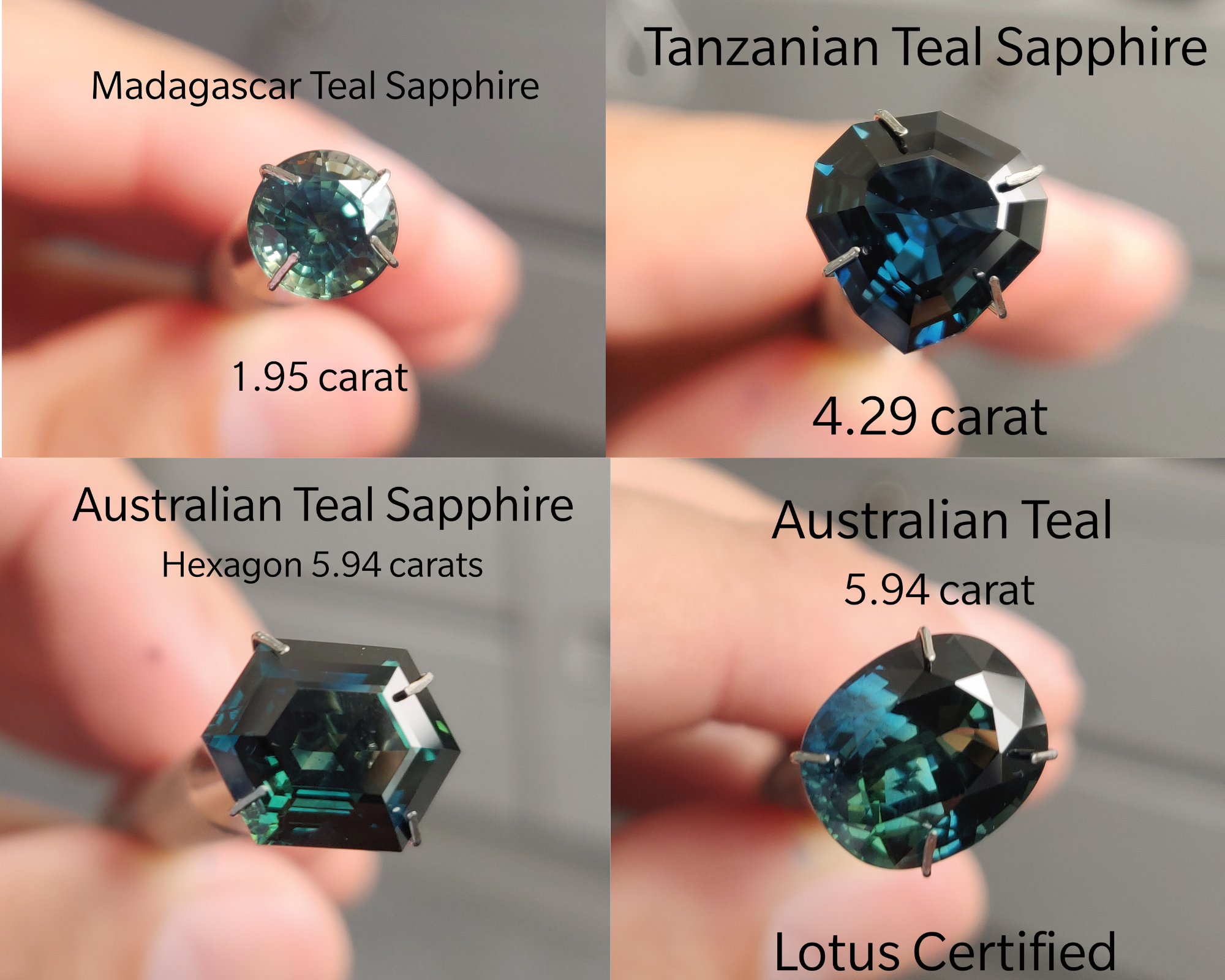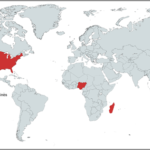Debunking Teal Sapphires – Part One: Understanding The Teal Sapphire Nomenclature
The magnetic teal sapphires are currently one of the most popular gemstones in the market. Their vibrant colors, akin to the majestic hues of the oceans and forests, make them the perfect center stone for any piece of jewelry. Despite their growing popularity, a lot of information on these stones remains unclear. For example, several different terminologies are used interchangeably to describe these stones, which may not necessarily indicate the true nature of these gems. In this article, we look at the various sapphire terminologies that are used in the market and distinguish them from teal sapphires.
It is important to achieve standardization to ensure that there is no discrepancy in expectation and final reception of the product. With most of the transactions happening digitally these days with online jewelry trade taking over brick and mortar stores, a standard terminology, which clearly depicts the quality of the stone is important.
What are Teal Sapphires?
Teal sapphires are dark cyan colored sapphires, with gradients of blue and green shades. There maybe elements of yellow and green in the stone too but the dominant colors should be either blue, green or both.Many consider teal sapphires as a representation of the Earth’s two most precious elements – the oceans and the forests.

Just as we mentioned before, teal sapphires consist of the blue, green, yellow or space grey tones in varying gradients. Due to the varying distribution of color tones, no two teal sapphires are alike. The following table breaks down teal sapphire’s various color compositions.
Other commonly used terminologies for teal sapphires:
With the boom of teal sapphires in the market in the last decade, the combination of blue and green sapphires have earned a number of names, depending on the sensibilities of different markets. Let us discuss a few of them here.
Mermaid sapphires
A subset of teal sapphires that is highly popular is the mermaid sapphire. The distribution of the blue and green hues of teal sapphires occur in the perfect ratio of 50:50 in these gems, which makes them an accurate representation of the merger between the oceans and the forests. The occurrence of these gems is quite rare compared to the other teal sapphires and hence their prices are comparatively higher. To know more, you can read our article on what makes mermaid sapphires the best kind of teal sapphires.

Parti sapphires
Another commonly used terminology when it comes to sapphires is parti sapphire, which basically refers to a ‘partition’ between the colors of these gemstones. These stones occur in a blend of various colors like green or blue with yellow. Unlike teal sapphires, the colors in parti sapphires have a distinct demarcation which forms two different bands known as color zones. Another distinct feature that makes them different from teal sapphires is the consistent display of colors. Parti sapphires appear the same in different lighting conditions, unlike teal sapphires that change their hues depending on the light source. Parti sapphires are just as popular as teal sapphires, owing to their unique esthetics. The buyer’s guide to parti sapphires explains the commercial aspect of these stunning gemstones better.

Bicolor sapphires
Bicolor sapphires include any sapphire stone with two distinct colors. The term bicolor is more popularly associated with tourmalines rather than sapphires. Since tourmalines cost significantly less than sapphires, the term bicolor is rarely preferred while describing the more luxurious sapphires.

Blue green sapphire
Another name that is widely used to describe teal sapphires is “blue green sapphire”. This merely describes the two-color tones found in these gems and can be used to denote any sapphire that occurs in blue and green hues. For the stone to be considered teal, it should have the combination of royal blue and dark green.

Color changing sapphires
Color changing sapphire primarily indicates any sapphire that exhibits a dominant color change in different lights. For example, bluish green to purple in natural light. Note that teal sapphires do not change their colors in different lighting conditions. However, they may appear different in natural and artificial light due to their reflection patterns.
Green sapphires/Green teal
The term green sapphires is used to denote sapphires that have a dominant green tone. Any sapphire with more than 90% of green hue can be called as green sapphires. Sometimes, customers use the term ‘green teal’ to refer to any teal sapphire with more green tinge.
Montana sapphires
Many buyers/traders sometimes refer to teal sapphires as Montana sapphires. However, the term Montana sapphires merely represents the origin of the sapphire stone rather than its nature. While they could be teal sapphires, they may also denote any other sapphire gem mined from Montana.
Teal Sapphires vs Other sapphires: Colors and Distribution
| Terminology | Main Colors | Distribution of colors |
| Teal Sapphire | Blue and Green | Any ratio |
| Mermaid Sapphire | Blue and Green | In 50:50 ratio |
| Parti Sapphire | Yellow with Blue/Green | Any ration, with clear demarcation between colors |
| Green Sapphires | Green with Blue/Other colors | 90% Green |
| Bicolor Sapphires | Any two colors | Any ratio |
Conclusion
There are various differentvarious terminologies which may have been mistakenly used to denote teal sapphires. The feature that distinguishes teal sapphires from the rest is the ratio and distribution of the primary colors. The term ‘teal sapphire’ may be used universally to refer to any sapphire with shades of blue and green distributed in varying gradients. To know more about them, check out our guide to buying wholesale teal sapphires here.
View this post on Instagram



